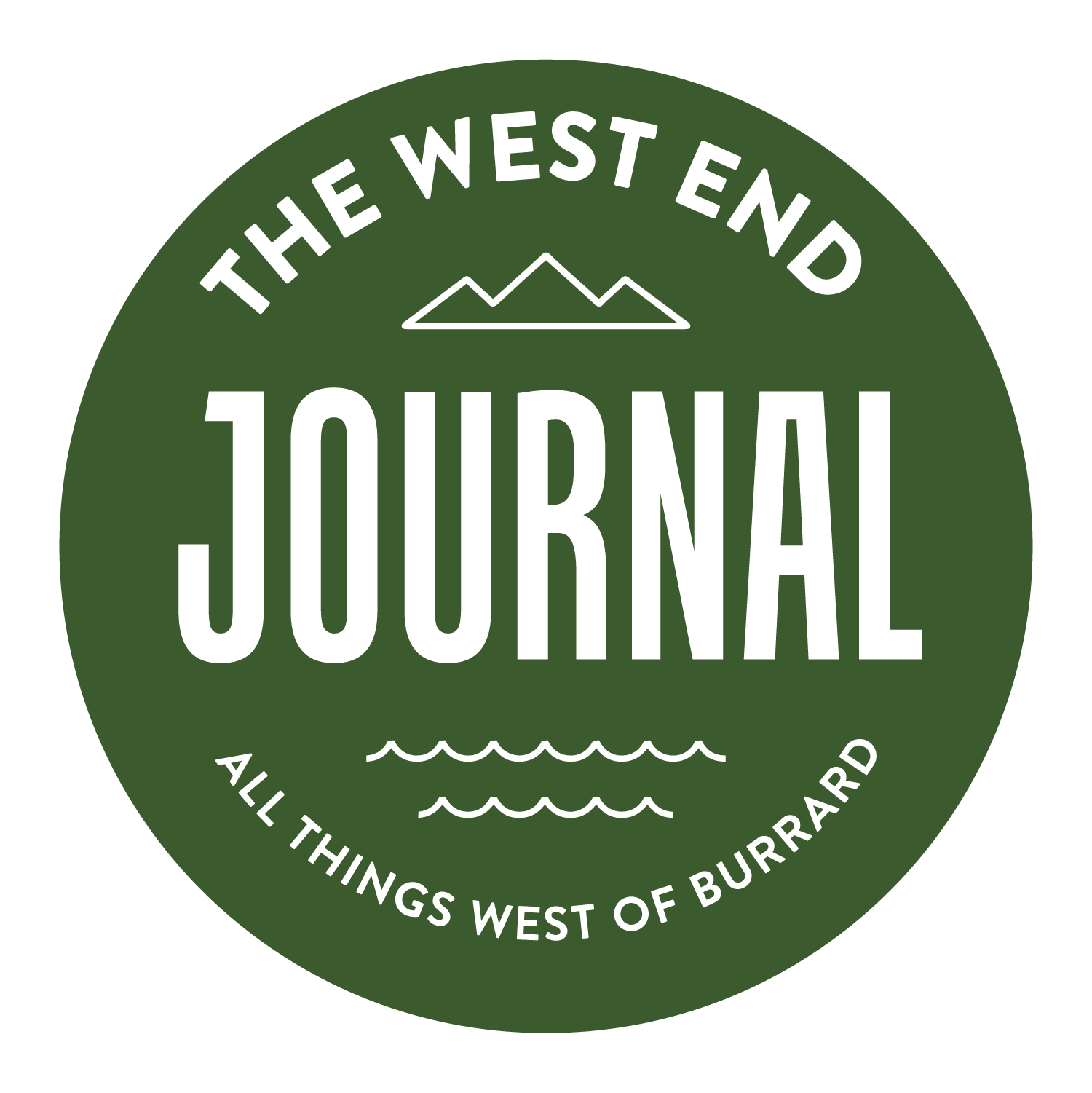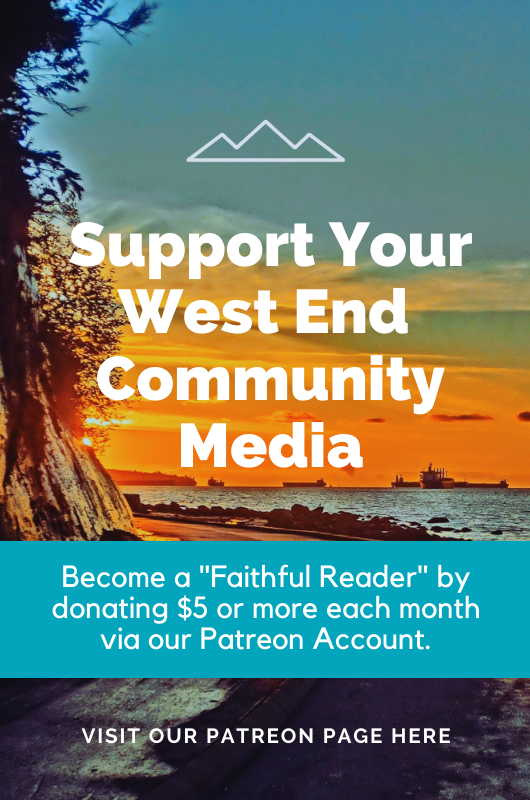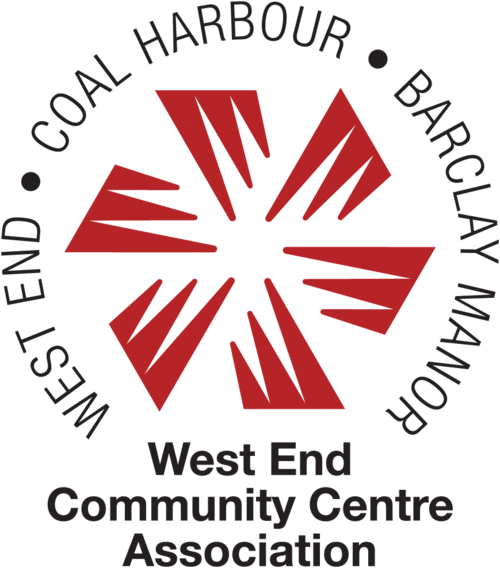VIEWPOINTS
/THE FALSE PREMISE OF VANCOUVER’S PUBLIC CONSULTATIONS
There’s nothing routine about water main replacement
by Dr. Wendy Sarkissian
I’ve been working for more than two years on a book about the climate breakdown. In the fall of 2023, the only thing left to do was record the audio book in my final few weeks before deadline. I carefully buffered my living room with padding, insulation, and other modifications to turn it into an audio studio. But suddenly I cannot use it, except at night.
There’s nothing “routine” about the water main work recently done on Nelson Street. (Wendy Sarkissian Photos)
Why? Because the City of Vancouver decided to do what they call “routine maintenance” on my block. In fact, they were doing major construction – replacing a water main on my residential West End street.
I was heartbroken. I had no idea this was coming. Had I known, I could have made other plans. I did have access to another audio recording studio, but it’s no longer available.
The biggest failure in the City’s approach here is the “routine maintenance” designation. As a result, they do not conduct community engagement processes with residents and others. The City advises that it would not change its approach because of any information that might arise from an engagement process. Therefore, it chose to undertake only minimal public information campaigns for the major project.
A straightforward way to address this issue is simply to re-designate this project as “corrective maintenance.”
Whereas routine maintenance is generally defined as a task that is scheduled, occurs regularly, and is quickly accomplished, corrective maintenance is non-routine and occurs without a predetermined frequency.
The City’s approach clouds the real issues. Since they deem it a “routine” project, no changes will be made in response to community contributions. Fine. However, the question is not whether the City should change its approach, but whether local people might respond in different (and better for them) ways if they knew precisely what was coming. Residents and others could change their behaviour if the City provided timely, high-quality, fine-grained, relevant information. Then local people could make lifestyle choices that would improve their quality of life during the weeks and months of the engineering process.
There was no warning of the extent of the disruptions to local traffic and resident access.
The City (and their waterworks design branch) assume this project merits only abbreviated public information (not even targeted to specific city blocks) because this work would not adversely affect local people. Many residents, including myself, did not receive the one-page advisory bulletin issued in August 2023. Recently, residents have complained vehemently on West End Facebook pages that they had no idea what to expect. No City contact person is identified, and no email address or telephone number is provided. This shows the advisory material provided was woefully inadequate.
The City of Vancouver underestimated the massive impacts of the water main replacement project for Nelson Street. The tiny amount of vague public information provided to residents completely underplayed the scale of the project. Several adjacent streets in city blocks were dug up and impassible for months. As many as four or five large pieces of (very noisy) engineering equipment operated concurrently (e.g., a backhoe moving large pipes, a concrete saw cutting pipes, a ride-on compactor, another backhoe digging trenches, and one or two dump trucks, operating or idling). Further, the City failed to consider parking impacts, leading to infuriated residents (with parking permits) searching endlessly for a parking space in their neighbourhood.
I observed no less than 33 separate processes on my section of Nelson, with impacts that could include any or all of the following: noise, vibration, air pollution, deterioration of the public realm, limited accessibility for people with a disability, severe parking restrictions, difficulties with deliveries (especially for older and housebound residents who rely on deliveries), broken sleep (not all work was conducted in accordance with the City’s noise bylaws, and some work began as early as 6:30 a.m.), limitations on home office use, and general distress to residents.
Further, several processes with high decibel ratings occurred concurrently during the Nelson Street project. Decibel levels as high as 200 dB (or higher) were recorded in some locations. Many large pieces of equipment emit noise levels between 90 and 110 dB. It was common to have a vacuum extraction truck working alongside a compactor and a backhoe in one location directly under residents’ windows. An acoustics specialist noted that the City’s decision to operate many noisy pieces of equipment concurrently could have significant health impacts for workers, as hearing damage results after four hours’ exposure to 80 dB. Further, the “amphitheatre effect” means that noise from one source can bounce between buildings, be amplified, and easily pass through uninsulated, single-pane windows.
Based on this experience and my expertise as a community planner, I’d advise three simple changes to the City of Vancouver’s consultation regime:
Review your engagement process. Undertake a comprehensive, resident-based assessment of the current public information processes and materials used for the water main replacement project.
Re-designate all water main replacement processes that involve engineering and construction activities in more than one city block as “corrective maintenance.”
Allocate appropriate budgets and develop engagement processes to deliver timely public information, communications, and engagement materials and processes to match the scope and scale of projects like the 2023 Nelson Street project.
Faced with such a massive intrusion for many months, West Enders (and any Vancouverite who’s experienced this in their neighbourhood) could change their plans. But only if we are given adequate time and accurate information.
_________________________________________________________________
Canadian-born Dr. Wendy Sarkissian has lived in the West End since 2017. Formerly a community planner and planning academic in Australia, she is now a full-time author, ethicist, and activist. Her books include: Creative Community Planning; Kitchen Table Sustainability; and Housing as if People Mattered. She recently published a climate memoir, Creeksong: One Woman Sings the Climate Blues.
You can find out more about her book at www.creeksongbook.com or get in touch with Wendy by email at wendy@sarkissian.com.au
SUPPORT YOUR WEST END - COAL HARBOUR COMMUNITY MEDIA
The West End Journal, including “Viewpoints”, is made possible by local advertising and monthly contributions from our Faithful Readers Circle. If you would like to support your community media, please visit our fundraising site here to contribute any amount from $5 a month up.
If you have a business in the West End / Coal Harbour neighbourhood, check out our advertising rates and information page here.
Thank you!
Kevin Dale McKeown
Editor & Publisher
editor@thewestendjournal.ca




